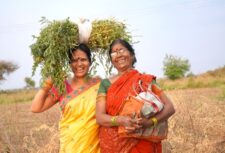Disclaimer: This article is more than 13 years old, and may not include the most up-to-date information or statistics. Please verify information with more recent sources as needed, and if you have any questions contact our Press Office.
22 June 2010
Thirty-one alleged traffickers were arrested in the UK, France, Germany and Hungary as part the biggest crackdown by European police forces on illegal immigration from Vietnam to the European Union.
However, another 66 migrants were also arrested in the joint-operation despite awareness by the authorities that they could be potential victims of trafficking.
Police involved in the raid told the BBC that many young Vietnamese men are trafficked to Europe and made to work as ‘gardeners’ in illegal cannabis factories to pay off a £13,000 debt to their traffickers for ‘transportation’ costs.
Vietnamese gangs are active in the Britain’s home grown cannabis industry, according to the police, who uncovered more than 3,000 cannabis plantations in the UK in 2009.
While the trafficking victims are often given only a bowl of rice a day to live on, the cannabis factories make fortunes for the criminal gangs who control them. By using special lighting to produce three crops annually, each factory is able to make the gangs more than £800,000 a year.
Klara Skrivankova, Anti-Slavery International’s Trafficking Programme Co-ordinator, said: “If the police recognise that they are uncovering young men who are not being paid to work on cannabis farms then they need to stop treating them as criminals and instead recognise them as the victims of a serious crime.”
Police believe most of the Vietnamese trafficked to Europe come from north Vietnam, either from the city of Haiphong or from the area north of the capital, Hanoi.
There are 30,000 Vietnamese people living legally in Britain but police estimate another 35,000 people could be working unofficially across the country.





